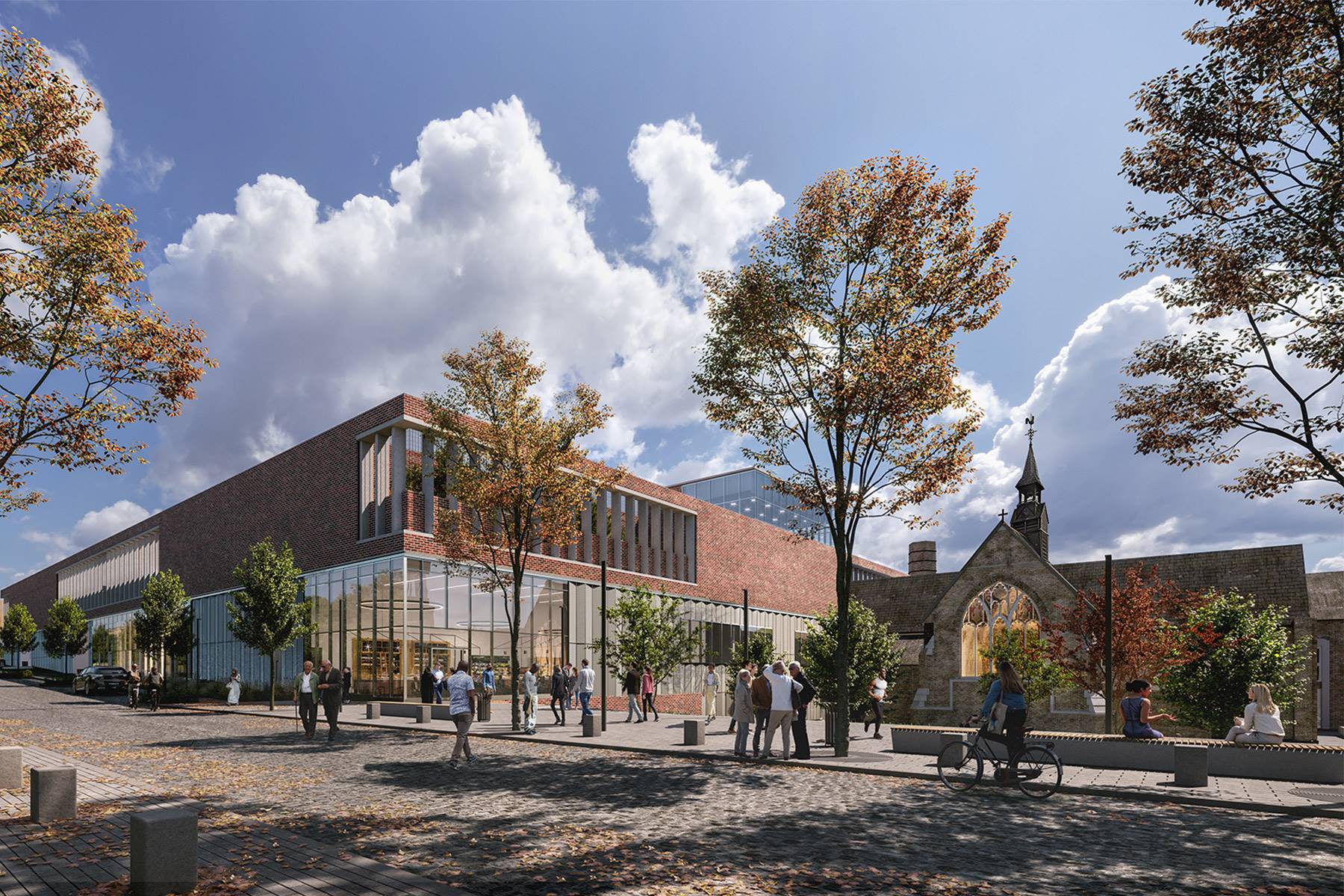
Celebrating International Women's Day with Imogen Masters
08 Mar 2021On International Women's Day (IWD), Imogen Masters shares more about her sustainability role, including how she sees women shaping the future of the construction industry.
With World Environment Day approaching on 5th June, Immy took some time out to highlight what this awareness day means to her, as well as sharing her experience working in sustainability.
With World Environment Day approaching on 5th June 2021, Immy shares insight into what this awareness day means to her, as well as highlighting her experience working in a sustainability role.
Sir Robert McAlpine has set some ambitious targets for our sustainability strategy 2020-2024, including net zero carbon emissions. I have ambitions to be a part of the progressive change and growth of the company and industry.
Immy Masters Graduate Sustainability Manager
What does World Environment Day mean to you?
World Environment Day is a time to reflect on our environmental impact in both our personal and professional lives, whilst we search for opportunities to help the planet with compassion, humility, and courage.
The theme for this year is Ecosystem Restoration. This serves as a day to spread awareness about the preservation and protection of the environment so that the public can become aware of their individual actions and choices through positive actions.
What made you want to work in sustainability?
At first sustainability was just a “buzz” word that would get added to any topic of conversation because of its broad meaning. I was unaware of what a tangible career in sustainability would look like because there was a lot of misconceptions about it being a serious career choice.
For me, it was about assessing my priorities and interests. Initially this was the interconnectedness of our environmental and human systems. I followed that passion to find a career that was rewarding. Ultimately, that pushed me into studying BSc Geography and MSc Sustainability at university, allowing me to make a career in sustainability a reality. The more I became aware of sustainability, the more power I had. I started to challenge the norm and make changes that were in my control. For example, I began using my consumer power to minimise my consumption habits and choosing to work in sustainability.
What do you enjoy most in your job?
Working in collaboration with different people from all walks of life and outlooks on construction. I come from a very traditional white middle-class family, so it’s refreshing and challenging to work with diverse people whilst we all focus on achieving the end goal of project completion. You don’t realise until you join the industry how many people you will interact with; from clients, sub-contractors, residents, and local schools. It requires a collaborative approach to working. I’ve been surprised of how rewarding it is to be on site and seeing the daily progress of everyone’s hard work. Construction has so much variety and every day is different.
If you could change one thing about your job, what would it be?
It would be the stigma and misconceptions around sustainability in construction. For many who have worked in the industry for a long time, sustainability is a new way of working and sometimes viewed as a burden and a cost. Trying to break that mindset surrounding sustainability not being a serious factor to consider remains a challenge. Covid-19 has been a global awakening that has pushed many industries into revaluating the balance of profits, people, and the environment, and Sir Robert McAlpine is doing a lot to challenge old cultures and misconceptions, which is encouraging as a young female working in sustainability.
What would your advice be to those wanting to pursue a career in sustainability?
My advice is to be curious about everything that interests you and search for the interconnectedness in your actions to the collective. The effectiveness of sustainability lies in the way we define it for ourselves and then put our own definition into practice. Yes, it’s important to read and have knowledge, but implementing your version of sustainability into your personal and professional life will be key for a young person wanting to work in sustainability.
This could mean challenging the status quo and continuing to ask important, yet hard questions about why we do what we do and why we are where we are. Never stop asking questions and challenging yourself because you should approach sustainability with a mindset of continuous learning.
Similarly, lead with curiosity, have fun, and find your niche passion whilst also living with compassion for yourself. Trust that you are doing the best you can at this moment and remembering that sustainability is a privilege that some can’t afford to do right now. I would also encourage letting go of the saviour complex and thinking you have to do it alone. Adopt a mindset of collaboration, empathy, and intuition. Sustainability is becoming more relevant with the current political and environmental climate, so there are a lot more opportunities and acceptance about having a serious career in sustainability than there have been previously. It’s much easier for younger people to get their foot in the door and experiment.
On International Women's Day (IWD), Imogen Masters shares more about her sustainability role, including how she sees women shaping the future of the construction industry.

In our new sustainability strategy, we commit to net zero carbon within five years and increased social value
